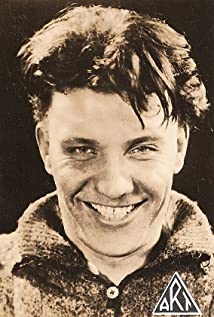Nikolai Simonov
Nikolai Konstantionovich Simonov was born on December 4, 1901, in Samara, Russian Empire. His father, named Konstantin Simonov, was a manager of a local food industry. Young Simonov read voraciously and dreamed about acting in theatre. From 1917-1919 he studied art at Samara School of Art and Design. From 1919-1923 he studied art at Academy of Fine Arts in St. Petersburg, where his teachers were Aleksei Rylov and Kuzma Petrov-Vodkin. From 1922-1924 he studied acting under Leonid Vivyen at the Institute of Theatrical Arts in St. Petersburg, from which he graduated with honors in 1924.
From 1924 -1973 Nikolai Simonov was a permanent member with the company of Pushkin Drama Theatre in St. Petersburg (Leningrad). Nikolai Simonov was among the leading actors of the Pushkin Drama Theatre. During the 1950s and 1960s he was Artistic Director of the Pushkin Drama Theatre. There his stage partners were such remarkable actors as Yekaterina Korchagina-Aleksandrovskaya, Illarion Pevtsov, Yuri Yuryev, Boris Babochkin, Nikolay Cherkasov, Vasiliy Merkurev, Konstantin Skorobogatov, Yuriy Tolubeev, Aleksandr Borisov, Bruno Frejndlikh, Vladimir Chestnokov, Vladimir Erenberg, Leonid Vivyen, Igor Gorbachyov, Olga Lebzak, Nina Mamaeva, Lidiya Shtykan, Nina Urgant, Valentina Panina, and other notable Russian actors.
Nikolai Simonov made his film debut in 1924 in Leningrad and played supporting roles in five Russian silent films. He shot to fame after his role of Commander Zhikharev in the classic film 'Chapaev' (1934) by brothers Georgi Vasilyev and Sergey Vasilev, where his partners were Boris Babochkin, Leonid Kmit, Illarion Pevtsov, Georgi Zhzhyonov, Boris Chirkov, and other Russian actors. Simonov's portrayal of Tsar Peter the Great in 'The Conquests of Peter the Great' (part one, 1937, and part two, 1938) brought him international fame and numerous awards.
Simonov was considered to be a patriarch of the St. Petersburg school of acting. His education and acting style was based on deep traditions of the School of Russian Drama which was founded in 1779, in St. Petersburg by Catherine the Great. Simonov's stage performances were legendary; several of his stage works were filmed for a historic record. His leading role in "The Living Corpse", an adaptation of the book by Lev Tolstoy, is remembered as one of the highest achievements in stage acting in Russian theatre. Simonov's portrayal of Antonio Salieri in "Malenkie tragedii" by Alexander Pushkin won him a Stanislavski State Prize award in 1962. Simonov regarded acting on stage as superior to acting in film; he supported the similar position of Konstantin Stanislavski and Vladimir Nemirovich-Danchenko.
Nikolai Simonov was awarded the State Prize of the USSR three times (1941, 1947, and 1950) and the State Prize of Russia (1966). He was the only actor in Russia three times awarded the Order of Lenin (1938, 1950, and 1967) for his achievements as an actor. In 1950 he was honored with the title of the People's Artist of the USSR. Simonov was also the father of a remarkable family, his wife was an actress, and his son, named Nikolai Nikolaevich Simonov, was a famous surgeon in Russia.
Nikolai Simonov died on April 20, 1973, in Leningrad (ST. Petesburg) and was laid to rest in the Necropolis of Masters of arts in St. Aleksandr Nevsky Convent in St. Petersburg, Russia.

